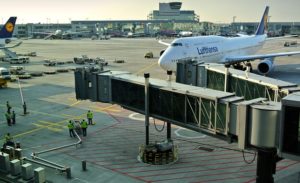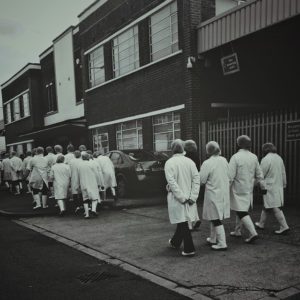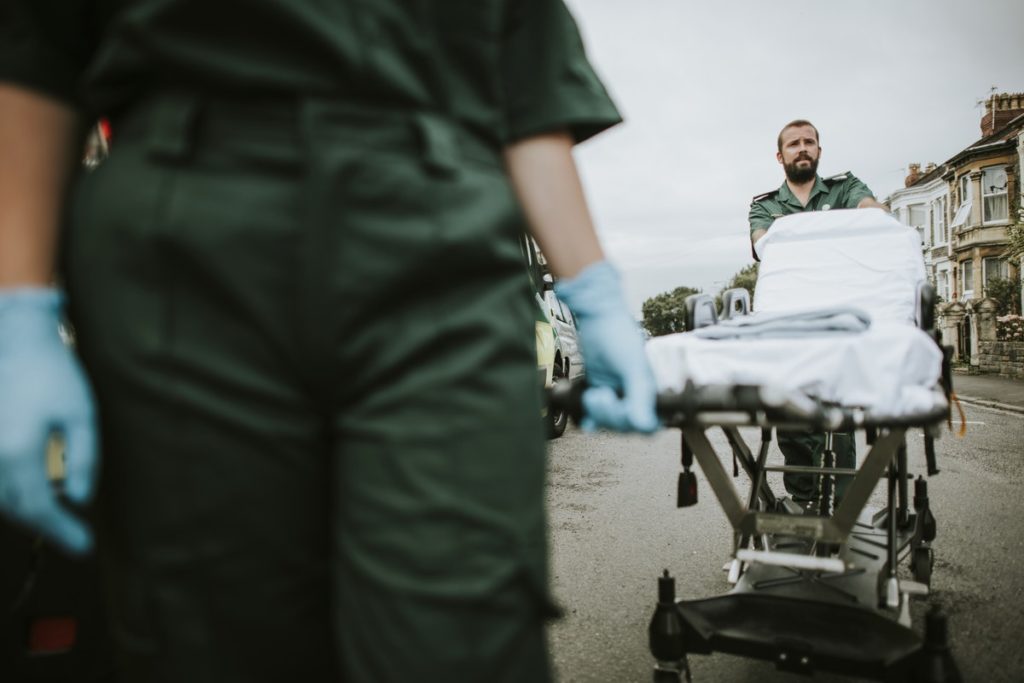Private medical transportation consists ofFinding Help to Get Around several components of services linked to insurance carrier policies; individuals located outside of their normal living area or preferred choices for private family members pertaining to transportation due to medical conditions. Whether the needed transport is air, ground, and local or distant destinations the services are intended to fulfill a need of stabilizing the patient during long term travel, ensuring medical care is administered properly throughout the transport process. At this phase transport may involve moving the patient from specialized facilities, or from one hospital to another, or picking up the patience from the emergency room for transport to a specialize center. These services require experienced staff, aware of the consequences, which can occur as a result of recent surgical operations, or treatment reactions for the patient.
Private medical transportation may begin or end from hospitals, private residences, assisted living facilities, nursing homes or hospice centers. The goal is to maintain a peace of mind for those being transported and the family members waiting for arrivals of loved ones during relocation phases of health care delivery. Private transport services understand the need to have a family member accompany the person during these times and strive to make the relocation as comfortable for all parties.
In some cases, local hospitals are not equipped to treat all conditions and private medical transportation to another facility needs to be arranged. Transporting services understand private transportation are necessities involving two facilities at times and continue to meet medical industry standards and health care coverage requirements with multiple transports. Serious injuries, specialized conditions and individuals visiting a foreign country may have a need to return home for treatment. Private transport services can expedite the relocation for these individuals, getting them to the specified facility for treatment. These out of area or out of country transport carriers are licensed to operate medical transportation vehicles fully equipped for safe arrivals to the designated health facility.
Once the patient is stable at the arrival facility, transport services may be called again to move the patient to a recovering facility. These secondary transport services can be ground or air depending on the location of the primary facility and may be a continuation of the first transport service provider. Vehicles are prepared to wait for a limited amount of time and will leave, returning to home base or responding to another call when time limitations or departure approvals are provided.
Long distance medical transportation services make every effort to respond to the medical needs of the passenger and strive to make the travel duration as comfortable as possible. Today’s technologies have modified and improved internal vehicle applications from on-board movies to music players, allowing for a customized environment without compromising medical services.
Patients requiring beds will find an increased comfort with today’s transport stretchers, helping to prevent or reduce the soreness associated with longer periods of lying in bed. The staff assisting and accompanying the patients throughout the journey are trained and licensed paramedic or EMTs skilled in providing medical assistance. Patience conditions do vary from elderly illnesses to severe injuries and arthritis to fractured bones, paralyses or post-surgery.
 Long distance medical transportation for non-emergency and emergency services may also be alternatives to ambulance or air transportations, depending on the situation. Staff experience and knowledge are necessary to understand the complexities of physical and mental challenges that vary from patient to patient in all circumstances. Transport management services make sure health; safety and comfort are high priorities in place at all times. The staff is fully familiar with concerns of long distance travel and impacts for reaching different types of medical facilities on-time. Emotional support is valuable to the patient and offers a calming assurance for the family, while traveling with staff members concentrating on care taking. These health care services mirror the features and health care procedures patients receive in hospitals and home care facilities.
Long distance medical transportation for non-emergency and emergency services may also be alternatives to ambulance or air transportations, depending on the situation. Staff experience and knowledge are necessary to understand the complexities of physical and mental challenges that vary from patient to patient in all circumstances. Transport management services make sure health; safety and comfort are high priorities in place at all times. The staff is fully familiar with concerns of long distance travel and impacts for reaching different types of medical facilities on-time. Emotional support is valuable to the patient and offers a calming assurance for the family, while traveling with staff members concentrating on care taking. These health care services mirror the features and health care procedures patients receive in hospitals and home care facilities.
Customized long distance medical transportation services include respecting the privacy of patients and family members and do offer a limited space for personal belongings. In most cases the transport is nonstop in order to reach the destination within a specified timeframe. More important for patients requiring special medical attention, while in transit with or without medical intervention is the bedside manner the team maintains throughout the entire process. Services may include medical assistance with intravenous and feeding tubes and oxygen as prescribed by the doctor.
Emergency transports are perfect transport alternatives for stable people in need of medical support to a medical appointment or scheduled treatment. Individuals who have undergone surgery at a hospital or completed an after surgery follow up appointment or treatment and currently live in a nursing home, will find these services fit the medical support needed during recovery. The trained professional staff is experienced in monitoring the patient’s condition and qualified to respond and provide medical assistance if needed.
Family members with elderly parents or adults will find these transport services are a convenience method of getting their loved to and from local offices or facilities for health care services. There are also times when family members are not ready for the transfer process of elderly individuals living within the home, or they may need transportation from one health facility to another, these transport service offer a safe and qualified vehicle for relocation of individuals who need medical help during the trip.
 Emergency transports offer door to door services, responding to medical conditions for patients and private individuals. The staff accompanying the passengers are trained transport professionals, ready to administer medical treatments to the patient if needed during the transport. The vehicles are designed and modified to provide a smooth ride during transports; they are also equipped with life-saving equipment needed to sustain the passenger until reaching the final medical destination for treatment.
Emergency transports offer door to door services, responding to medical conditions for patients and private individuals. The staff accompanying the passengers are trained transport professionals, ready to administer medical treatments to the patient if needed during the transport. The vehicles are designed and modified to provide a smooth ride during transports; they are also equipped with life-saving equipment needed to sustain the passenger until reaching the final medical destination for treatment.
These services are designed to make the patient comfortable keeping them safe during relocation transport. Depending on the severity and health condition, vehicles are capable of supporting head and back adjustment with headrests, and state of the art mattresses for back support. Whether the medical staff is confronting a physical injury or a progressive mental illness, the concern and focuses is on the patient’s secured travel arrangements, preparing them for arrival and transfer to the awaiting medical staff for one way or round trip transports.
Who uses medical transportation? The health care industry has undergone some changes from how the services are administered to improving the living conditions for those in need of regularly scheduled medical transport services. One of the difficulties has been transporting patients safely and quickly to medical facilities for treatments in urban areas where road conditions may vary due to increased populations and traffic congestion, particularly in airports areas.
Depending on the medical status 15-30 minutes is sufficient for most non critical, more serious conditions can be a challenge with restrictions of time due to uncontrollable traffic or road situations. It prompts intervention that makes the difference in most cases, this is also where the trained and professional staff accompanying the person is critical to administer accurate health treatments, and while in route they are monitoring and communicating with the designated care facilities.
During transport the staff is able to communicate the circumstances, preparing the arriving facilities for admission, more important the arriving facility will be able to determine its ability to treat the condition on site or bring in an expert for care. There are times when the transfer of the patient from one facility to another is necessary due to health conditions, especially for the terminally ill patient and the facility’s ability to treat or sustain the patient. Rapid respond and transport become vital when certain illnesses are exposed.
Severe conditions or time critical situations such as heart attacks or stroke are ailments where transport medical services are limited not due the staff’s ability or vehicle equipment limitations, but due to the patient’s intense response to what’s happening internally. Today’s technology has improved the transports, yet expertise is still needed to intervene with the symptoms, and reactions not only identified during transport, but known to occur systematically with the affliction.
 It’s imperative for transports to reach emergency destinations as quickly as possible. On-board medications normally have limited inventory and from time to time, the staff may consist of a nurse, paramedic, or physician ready to administer medical procedures to patients in need. The advantages of medical transports bring the ability of a professional medical staff to treat immediate health conditions during rapid transits for critical patients, while at the same time determining local resources for others.
It’s imperative for transports to reach emergency destinations as quickly as possible. On-board medications normally have limited inventory and from time to time, the staff may consist of a nurse, paramedic, or physician ready to administer medical procedures to patients in need. The advantages of medical transports bring the ability of a professional medical staff to treat immediate health conditions during rapid transits for critical patients, while at the same time determining local resources for others.
Leisure medical transport offer stable patients requiring a medical nurse, companion or caregiver the ability to travel safely. The goal is to make the trip comfortable for everyone and having a trained medical assistant on-board ensures the patient’s well-being providing an assurance and added confidence for the family knowing the needed support for health care is with them.
Prior to the trip, management services will help decide which vehicle fits the transport destinations for medical equipment, individual accommodations and necessary gear such as wheelchairs, oxygen, blood pressure and first aid kits, proper medical pillows and blankets if needed. Profession transport services are ready to handle the medical needs for disabled persons traveling during leisure times alone or with family members. The staff for these services is acquainted with the passenger’s medical needs for long and short transportation.
Long distance and continuing overnight, transports present a few challenges not experienced with short distance transportation services. Medical conditions and the health of the patient are taken into consideration when coordinating these long journeys. The vehicle can be a van, coach or bus equipped with multiple beds and fully operational restrooms for convenience of all parties traveling. The goal is to offer an alternative method for safe travel without changes to lifestyle activities for family events, socializing or simply bridging the gaps between medical visits and personal preferences.

